| Coach | NA |
| Venue | Stadio Marco Druso |
Sudtirol predictions
Predictions for Sudtirol: See upcoming and historic predictions for Sudtirol below.
Disclaimer: Past performance does not guarantee future results. Betting involves risk; only wager what you can afford to lose. Always gamble responsibly.
Serie B standings
| Rank | Team | MP | W | D | L | GF | GA | GD | Pts |
|---|---|---|---|---|---|---|---|---|---|
| 1 |
 Parma
Parma
|
32 | 19 | 9 | 4 | 57 | 32 | 25 | 66 |
| 2 |
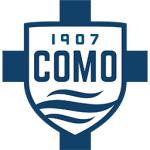 Como
Como
|
32 | 18 | 7 | 7 | 47 | 34 | 13 | 61 |
| 3 |
 Cremonese
Cremonese
|
32 | 17 | 8 | 7 | 42 | 26 | 16 | 59 |
| 4 |
 Venezia
Venezia
|
31 | 17 | 6 | 8 | 58 | 38 | 20 | 57 |
| 5 |
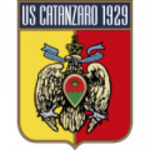 Catanzaro
Catanzaro
|
32 | 15 | 7 | 10 | 50 | 41 | 9 | 52 |
| 6 |
 Palermo
Palermo
|
32 | 14 | 8 | 10 | 57 | 47 | 10 | 50 |
| 7 |
 Brescia
Brescia
|
32 | 11 | 12 | 9 | 38 | 33 | 5 | 45 |
| 8 |
 Sampdoria
Sampdoria
|
32 | 13 | 7 | 12 | 47 | 47 | 0 | 44 |
| 9 |
 Cittadella
Cittadella
|
32 | 11 | 9 | 12 | 37 | 40 | -3 | 42 |
| 10 |
 Pisa
Pisa
|
32 | 10 | 10 | 12 | 41 | 44 | -3 | 40 |
| 11 |
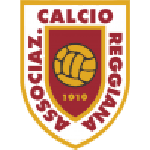 Reggiana
Reggiana
|
32 | 8 | 16 | 8 | 34 | 37 | -3 | 40 |
| 12 |
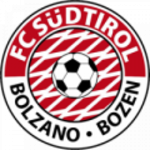 Sudtirol
Sudtirol
|
32 | 10 | 9 | 13 | 39 | 41 | -2 | 39 |
| 13 |
 Modena
Modena
|
32 | 8 | 15 | 9 | 36 | 41 | -5 | 39 |
| 14 |
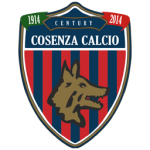 Cosenza
Cosenza
|
32 | 8 | 11 | 13 | 34 | 37 | -3 | 35 |
| 15 |
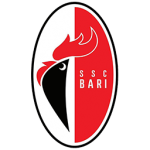 Bari
Bari
|
32 | 7 | 14 | 11 | 31 | 40 | -9 | 35 |
| 16 |
 Spezia
Spezia
|
32 | 7 | 14 | 11 | 31 | 44 | -13 | 35 |
| 17 |
 Ternana
Ternana
|
32 | 8 | 9 | 15 | 36 | 44 | -8 | 33 |
| 18 |
 Ascoli
Ascoli
|
31 | 7 | 10 | 14 | 33 | 38 | -5 | 31 |
| 19 |
 Feralpisalo
Feralpisalo
|
32 | 8 | 7 | 17 | 37 | 51 | -14 | 31 |
| 20 |
 Lecco
Lecco
|
32 | 5 | 8 | 19 | 30 | 60 | -30 | 23 |
About Sudtirol
Football Club Südtirol, often simply known as FC Südtirol, is a professional football club based in Bolzano, Italy. The club was established in 1995, with the aim of representing the German-speaking population of South Tyrol, a predominantly German-speaking province in northern Italy. FC Südtirol is currently competing in the Serie C, the third tier of Italian football, and plays its home games at the Druso Stadium in Bolzano.
The club was founded by a group of local businessmen who wanted to create a team that could represent the unique cultural identity of South Tyrol. Despite being located in Italy, the region has a distinct Germanic heritage, and the founders of FC Südtirol wanted to create a team that could reflect this.
In its early years, the club quickly climbed the ranks of Italian football, reaching the Serie C2, the fourth tier of Italian football, by the 2000-2001 season. The club's rapid rise was due in large part to its strong youth development program, which has produced several players who have gone on to play in the higher tiers of Italian football.
In the 2009-2010 season, FC Südtirol achieved its greatest success to date, winning the Serie C2 and earning promotion to the Serie C1, the third tier of Italian football. This marked the first time that a team from South Tyrol had reached this level of Italian football.
Despite its successes on the field, FC Südtirol has faced challenges off the field. The club has struggled to attract large crowds to its games, due in part to the small size of the South Tyrolean population and the region's relative isolation from the rest of Italy. However, the club has a loyal fan base and has been able to maintain its professional status thanks to the support of local businesses and the South Tyrolean community.
In recent years, FC Südtirol has focused on developing its youth academy, with the aim of producing homegrown talent that can compete at the highest levels of Italian football. The club's youth teams have been successful, winning several regional and national championships.
FC Südtirol's unique identity, as a club that represents a German-speaking region in Italy, has made it a symbol of South Tyrolean pride. Despite the challenges it has faced, the club has remained committed to its goal of representing the South Tyrolean community and developing local football talent.















